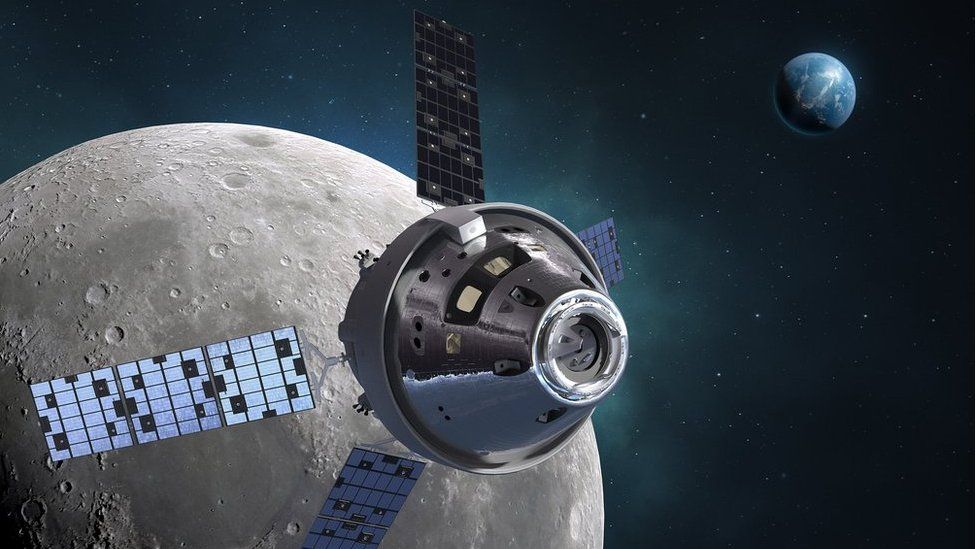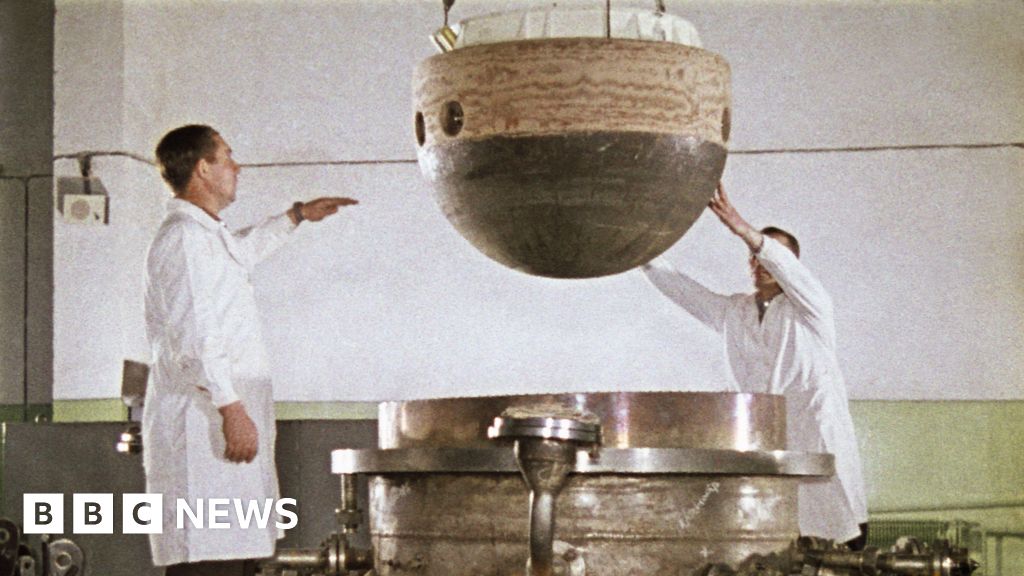ARTICLE AD BOX
 Image source, Lockheed Martin
Image source, Lockheed Martin
Goonhilly will track the uncrewed Orion capsule on its mission around the Moon
Goonhilly Earth Station in Cornwall will provide communications support for Nasa's Artemis 1 mission to orbit the Moon.
The space communications centre will track the uncrewed Orion capsule and communicate with small satellites being launched on the mission.
Nasa hopes Artemis 1 will pave the way for crewed missions to the Moon.
In 1969, Goonhilly was responsible for feeding the live pictures of the first crewed Moon landing.
Image source, Goonhilly Earth Station
Image caption,Goonhilly will track the capsule up to 448,000 km away from Earth
Artemis 1, which is due to launch on Monday, will send the capsule around the Moon and back, to test systems and procedures ahead of a crewed flight in 2024.
Goonhilly, near Helston on the Lizard Peninsula, will track the capsule over a six-week period.
Goonhilly Earth Station
- Goonhilly Earth Satellite station was built on Goonhilly Downs at a cost of £650,000
- The site was chosen because it was flat, giving a clear view of the horizon, and its hard rock surface could take the weight of the 1,118-tonne dish - officially named Antenna 1, but nicknamed Arthur
- Arthur is an 85ft (26m) wide dish and a Grade II listed structure
- On 11 July 1962, pictures from America were sent via the Telstar satellite to Goonhilly
- The project led the way to modern satellite communications
During the past year, Goonhilly has supported a number of other space missions with the European Space Agency.
Goonhilly chief executive Ian Jones said taking part in the Artemis 1 mission was an "immense privilege".
"Our team has worked tremendously hard over the last several years to get us to this position," he said.
"As well as the excitement of returning humans to the Moon, this new chapter demonstrates the validity of the commercial business model developed at Goonhilly."
Sue Horne, head of space exploration at the UK Space Agency, said Goonhilly's involvement was a "significant step forward" in the UK's "capacity to offer commercial lunar communications".

 2 years ago
44
2 years ago
44








 English (US) ·
English (US) ·